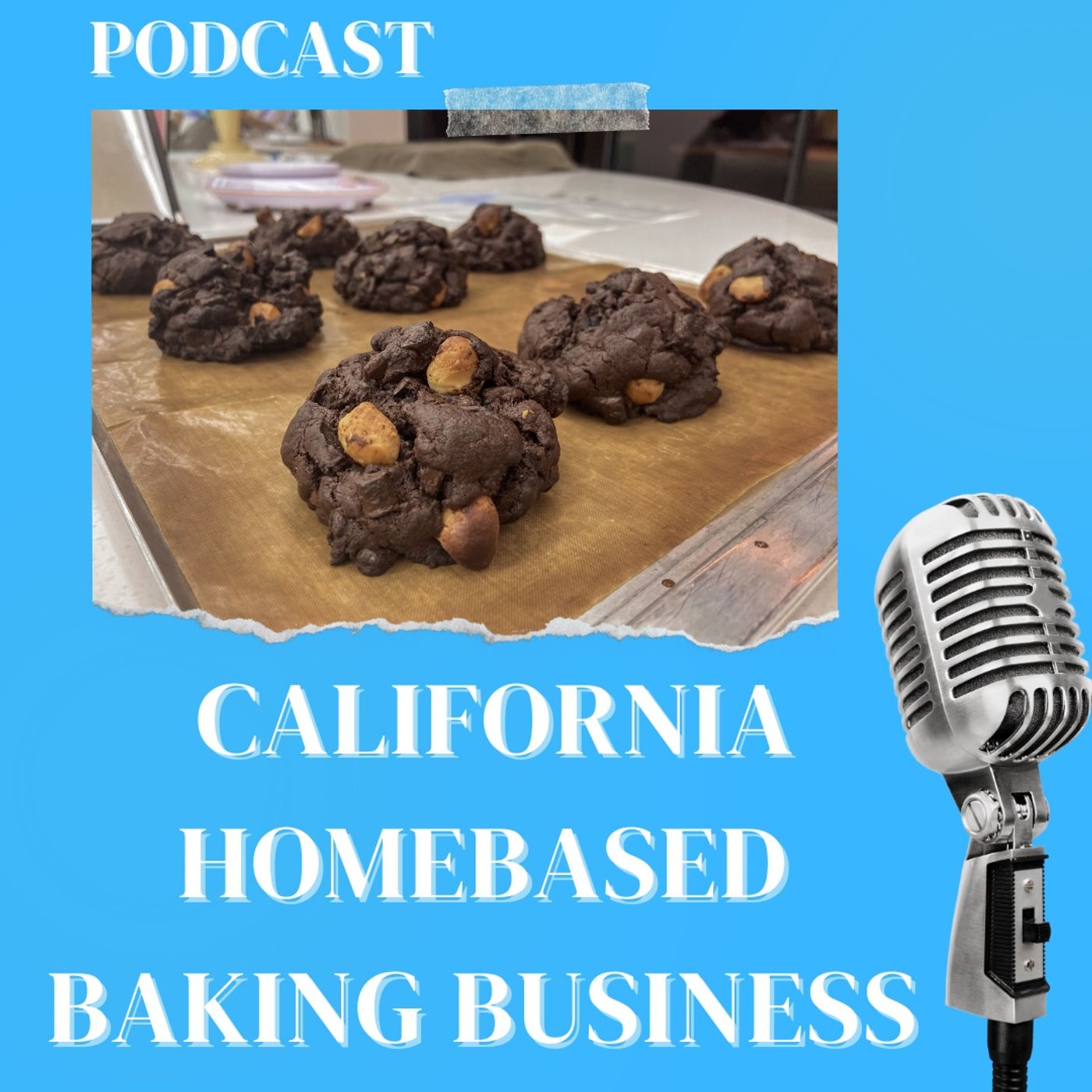Georgia Cottage Food Business
Update: 2024-12-21
Description
Georgia Cottage Food Business, Have you ever dreamed of turning your homemade treats into a source of income? If you live in Georgia, you may be in luck. Georgia’s cottage food laws open up an exciting opportunity for aspiring entrepreneurs to legally sell certain types of homemade foods straight from their own kitchens. In this episode, we take a deep dive into the regulations, requirements, and practical tips you need to know before you start baking, canning, or packaging your goods for sale. Whether you’re envisioning a small side hustle at farmers’ markets or a springboard for a future brick-and-mortar bakery, understanding these laws is crucial for ensuring your business is both profitable and compliant. Below, we’ll explore the key topics we cover in the show—and why these details can make or break your success in the cottage food industry.1. What Are Georgia’s Cottage Food Laws?
Cottage food laws are essentially regulations that allow home-based entrepreneurs to prepare and sell certain “low-risk” foods without having to operate in a commercially licensed kitchen. These laws are designed to encourage small-scale food businesses by streamlining the process and making it more accessible. In Georgia, the Department of Agriculture oversees cottage food operations and establishes the criteria for what can be produced and sold under the program. The goal is to protect public health while also supporting local economic growth and innovation. During the podcast, we discuss the legal framework and how to navigate the official government websites to ensure you’re always up to date with the latest requirements.2. Who Can Participate and Which Foods Are Allowed?
Not everyone automatically qualifies as a cottage food operator. There are specific rules about which foods can be sold and under what conditions. Typically, “non-potentially hazardous” foods—meaning those that don’t require refrigeration or strict temperature control—are permitted. Examples include baked goods like cookies and cakes (without cream fillings), fruit jams, jellies, and certain dry goods like spice mixes. Foods that pose a higher risk of bacterial growth, such as meat products, dairy-based desserts, or anything requiring temperature control, generally aren’t allowed. In this episode, we highlight the comprehensive list of approved and prohibited items, helping you figure out whether your culinary specialty falls within the cottage food umbrella.3. Licensing and Legal Requirements
Even though Georgia’s cottage food laws make it easier to sell your home-cooked goodies, you still need to meet certain requirements. For instance, you must obtain a Cottage Food License from the Georgia Department of Agriculture, which includes completing an application, paying a fee, and in some cases undergoing an inspection or completing a food safety training course. Many new entrepreneurs overlook the importance of having the right documentation, only to encounter roadblocks later when they try to scale or expand to new sales outlets. Throughout the podcast, we break down the costs, timelines, and specific forms involved, so you can streamline the process and avoid any surprises. We also discuss how to prepare for an in-home inspection if that’s required for your particular type of product, ensuring your kitchen meets the necessary standards of cleanliness and organization.4. Packaging, Labeling, and Disclaimers
Arguably one of the most overlooked parts of the cottage food business is proper labeling. Georgia law requires that all cottage food products carry specific labels, which include details such as the name of the product, the ingredients listed in descending order by weight, and your contact information. You may also need to include allergy warnings for ingredients like nuts, wheat, soy, or dairy. Moreover, if your products are not produced in a licensed food processing plant, you typically have to include a disclaimer stating that they were made in a facility not inspected by the state. In this episode, we walk you through these labeling requirements step by step, offering tips for designing labels that are both compliant and visually appealing to customers. We also address common pitfalls, such as forgetting to list sub-ingredients or omitting your full address, which could lead to compliance issues down the line.5. Where and How to Sell Your Goods
Once you’ve nailed down your licensing and labeling, the next logical question is: “Where do I sell these amazing treats?” Georgia’s cottage food laws usually permit you to sell directly to consumers, often at venues such as farmers’ markets, roadside stands, and community events. Selling online and shipping your products, however, can be more complicated, as some local jurisdictions may have restrictions on interstate sales of homemade foods. We spend time in this episode discussing different strategies for reaching your audience, from setting up a simple table at your local fair to utilizing social media and email marketing to drum up demand. We also delve into the importance of building relationships with customers, collecting feedback, and using that feedback to refine your product line and grow your business organically.6. Food Safety and Best Practices
While cottage food laws simplify many aspects of food production, food safety should still be a top priority. A single case of foodborne illness can have devastating repercussions not just for your customers’ health but for your reputation and potential legal liability. Therefore, we talk about best practices for keeping a clean kitchen, including how to prevent cross-contamination, store ingredients properly, and maintain consistent cooking and baking temperatures. We discuss the value of taking an accredited food safety course and implementing a HACCP (Hazard Analysis Critical Control Point) plan, even if it’s not strictly required by law. By demonstrating your commitment to safety and quality, you’ll build trust with your audience and set yourself apart from less-prepared competitors.7. Scaling Your Cottage Food Business
For many cottage food producers, starting with homemade cookies or jams is just the beginning of a longer entrepreneurial journey. In the podcast, we also cover what happens when your side hustle grows beyond the scope of cottage food laws. Perhaps you’ve built a loyal customer base and are ready to expand your product line to include items not allowed under cottage food regulations. Or maybe you want to sell wholesale to local cafés and grocery stores. That often means stepping into a commercial kitchen or investing in a small production facility. We outline the key considerations for making the leap, from cost-benefit analyses to local zoning laws and the additional licensure you’ll need for wholesale or interstate sales.8. Practical Tips and Real-Life Success Stories
Finally, to bring all these concepts to life, we share real stories from individuals who have successfully navigated Georgia’s cottage food laws. You’ll hear how they started small—maybe with a single product—then systematically scaled up by reinvesting profits, refining recipes, and building a loyal customer community. We also cover the challenges they faced, whether it was passing a home inspection, juggling marketing with day-to-day operations, or staying organized with bookkeeping. Their experiences offer a treasure trove of lessons and inspiration, proving that with the right planning, a home-based food business can be both financially and personally rewarding.Whether you’re an enthusiastic home baker aiming to turn your passion into extra income, or a serious entrepreneur with plans to launch a full-fledged artisanal food brand, Georgia’s cottage food laws present a valuable starting point. Understanding the nuances of eligibility, licensing, labeling, and food safety can spell the difference between a thriving, legitimate business and a short-lived project riddled with setbacks. Tune in to this episode as we demystify the process, share behind-the-scenes insights, and equip you with everything you need to know to succeed in Georgia’s flourishing cottage food scene. Your homemade creations could be the next big hit in your community—so let’s get you set up for success!
Become a supporter of this podcast: https://www.spreaker.com/podcast/marketing-food-online-food-entrepreneur--2797701/support.
Cottage food laws are essentially regulations that allow home-based entrepreneurs to prepare and sell certain “low-risk” foods without having to operate in a commercially licensed kitchen. These laws are designed to encourage small-scale food businesses by streamlining the process and making it more accessible. In Georgia, the Department of Agriculture oversees cottage food operations and establishes the criteria for what can be produced and sold under the program. The goal is to protect public health while also supporting local economic growth and innovation. During the podcast, we discuss the legal framework and how to navigate the official government websites to ensure you’re always up to date with the latest requirements.2. Who Can Participate and Which Foods Are Allowed?
Not everyone automatically qualifies as a cottage food operator. There are specific rules about which foods can be sold and under what conditions. Typically, “non-potentially hazardous” foods—meaning those that don’t require refrigeration or strict temperature control—are permitted. Examples include baked goods like cookies and cakes (without cream fillings), fruit jams, jellies, and certain dry goods like spice mixes. Foods that pose a higher risk of bacterial growth, such as meat products, dairy-based desserts, or anything requiring temperature control, generally aren’t allowed. In this episode, we highlight the comprehensive list of approved and prohibited items, helping you figure out whether your culinary specialty falls within the cottage food umbrella.3. Licensing and Legal Requirements
Even though Georgia’s cottage food laws make it easier to sell your home-cooked goodies, you still need to meet certain requirements. For instance, you must obtain a Cottage Food License from the Georgia Department of Agriculture, which includes completing an application, paying a fee, and in some cases undergoing an inspection or completing a food safety training course. Many new entrepreneurs overlook the importance of having the right documentation, only to encounter roadblocks later when they try to scale or expand to new sales outlets. Throughout the podcast, we break down the costs, timelines, and specific forms involved, so you can streamline the process and avoid any surprises. We also discuss how to prepare for an in-home inspection if that’s required for your particular type of product, ensuring your kitchen meets the necessary standards of cleanliness and organization.4. Packaging, Labeling, and Disclaimers
Arguably one of the most overlooked parts of the cottage food business is proper labeling. Georgia law requires that all cottage food products carry specific labels, which include details such as the name of the product, the ingredients listed in descending order by weight, and your contact information. You may also need to include allergy warnings for ingredients like nuts, wheat, soy, or dairy. Moreover, if your products are not produced in a licensed food processing plant, you typically have to include a disclaimer stating that they were made in a facility not inspected by the state. In this episode, we walk you through these labeling requirements step by step, offering tips for designing labels that are both compliant and visually appealing to customers. We also address common pitfalls, such as forgetting to list sub-ingredients or omitting your full address, which could lead to compliance issues down the line.5. Where and How to Sell Your Goods
Once you’ve nailed down your licensing and labeling, the next logical question is: “Where do I sell these amazing treats?” Georgia’s cottage food laws usually permit you to sell directly to consumers, often at venues such as farmers’ markets, roadside stands, and community events. Selling online and shipping your products, however, can be more complicated, as some local jurisdictions may have restrictions on interstate sales of homemade foods. We spend time in this episode discussing different strategies for reaching your audience, from setting up a simple table at your local fair to utilizing social media and email marketing to drum up demand. We also delve into the importance of building relationships with customers, collecting feedback, and using that feedback to refine your product line and grow your business organically.6. Food Safety and Best Practices
While cottage food laws simplify many aspects of food production, food safety should still be a top priority. A single case of foodborne illness can have devastating repercussions not just for your customers’ health but for your reputation and potential legal liability. Therefore, we talk about best practices for keeping a clean kitchen, including how to prevent cross-contamination, store ingredients properly, and maintain consistent cooking and baking temperatures. We discuss the value of taking an accredited food safety course and implementing a HACCP (Hazard Analysis Critical Control Point) plan, even if it’s not strictly required by law. By demonstrating your commitment to safety and quality, you’ll build trust with your audience and set yourself apart from less-prepared competitors.7. Scaling Your Cottage Food Business
For many cottage food producers, starting with homemade cookies or jams is just the beginning of a longer entrepreneurial journey. In the podcast, we also cover what happens when your side hustle grows beyond the scope of cottage food laws. Perhaps you’ve built a loyal customer base and are ready to expand your product line to include items not allowed under cottage food regulations. Or maybe you want to sell wholesale to local cafés and grocery stores. That often means stepping into a commercial kitchen or investing in a small production facility. We outline the key considerations for making the leap, from cost-benefit analyses to local zoning laws and the additional licensure you’ll need for wholesale or interstate sales.8. Practical Tips and Real-Life Success Stories
Finally, to bring all these concepts to life, we share real stories from individuals who have successfully navigated Georgia’s cottage food laws. You’ll hear how they started small—maybe with a single product—then systematically scaled up by reinvesting profits, refining recipes, and building a loyal customer community. We also cover the challenges they faced, whether it was passing a home inspection, juggling marketing with day-to-day operations, or staying organized with bookkeeping. Their experiences offer a treasure trove of lessons and inspiration, proving that with the right planning, a home-based food business can be both financially and personally rewarding.Whether you’re an enthusiastic home baker aiming to turn your passion into extra income, or a serious entrepreneur with plans to launch a full-fledged artisanal food brand, Georgia’s cottage food laws present a valuable starting point. Understanding the nuances of eligibility, licensing, labeling, and food safety can spell the difference between a thriving, legitimate business and a short-lived project riddled with setbacks. Tune in to this episode as we demystify the process, share behind-the-scenes insights, and equip you with everything you need to know to succeed in Georgia’s flourishing cottage food scene. Your homemade creations could be the next big hit in your community—so let’s get you set up for success!
Become a supporter of this podcast: https://www.spreaker.com/podcast/marketing-food-online-food-entrepreneur--2797701/support.
Comments
Top Podcasts
The Best New Comedy Podcast Right Now – June 2024The Best News Podcast Right Now – June 2024The Best New Business Podcast Right Now – June 2024The Best New Sports Podcast Right Now – June 2024The Best New True Crime Podcast Right Now – June 2024The Best New Joe Rogan Experience Podcast Right Now – June 20The Best New Dan Bongino Show Podcast Right Now – June 20The Best New Mark Levin Podcast – June 2024
In Channel









![How to Start a Home Bakery Business in California [ Cottage Food Laws ] FULL TUTORIAL (3) How to Start a Home Bakery Business in California [ Cottage Food Laws ] FULL TUTORIAL (3)](https://d3wo5wojvuv7l.cloudfront.net/t_rss_itunes_square_1400/images.spreaker.com/original/e779d1e612c2e4dac6f3e4c5fe6f62d4.jpg)



